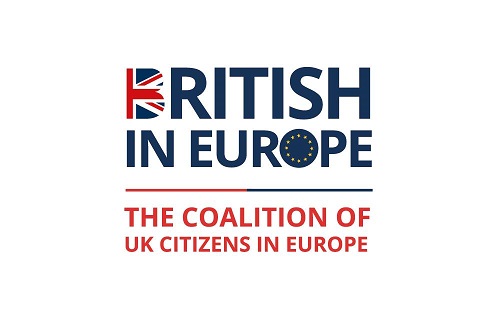The EU published its draft for the Withdrawal Agreement on Feb 28, 2018. It can be read in full here. Articles 8-35 cover citizens’ rights.
On March 6, 2018, British in Europe circulated draft high-level legal comments regarding these elements of the document in preparation for the European Council meeting on March 9.
You can download the full document here.
Excerpts from the document:
Introduction:
On Friday 9 March, the European Council will consider the draft UK Withdrawal Agreement prepared by the EC Article 50 Task Force (“the draft”). The aim is to produce a legally enforceable agreement embodying the political understanding reached in a Joint Report (JR) last December and dealing with other outstanding issues.
The European Parliament’s resolution of 13.12.17 made it clear that the JR did not go far enough in a number of important respects. British in Europe and the3million published a detailed critique of the JR1 with suggestions as to what the Withdrawal Agreement
needed to include to achieve the stated aim of ensuring that nothing would change for EU27 nationals in the UK and for UK nationals in the EU.
In preparation for the European Council’s consideration of the draft, we have conducted a review and prepared a checklist of initial comments. We will supplement this with a detailed legal analysis of the draft once adopted. Our comments cover the following:
- Outstanding issues e.g. free movement, future family reunification.
- Omissions from the text e.g. persons not currently covered.
- Ambiguities e.g. the position of dual citizens and Initial drafting comments.
Since ‘nothing is agreed until everything is agreed’, all of these issues must be addressed in Phase 2 and accorded at least equal priority to that afforded other issues such as Northern Ireland.
1. Article 32:
Free movement for UK citizens in the EU (“UKinEU”) and lifelong right of return for EU citizens in the UK (“EUinUK”).
This is linked to the issue of whether associated individual economic rights, and recognition of qualifications will apply across the EU for these citizens. Although this is an outstanding issue and still subject
to negotiation, the draft goes much further and specifically excludes free movement rights for UK citizens in the EU. It makes clear that this exclusion covers:
- Free movement rights to other Member States;
- Right of establishment in other Member States;
- Right to provide services on the territory of another Member State; AND
- Right to provide services to a person established in another Member State
This last is an entirely new and highly restrictive provision introduced at a late stage into the negotiations by the Commission without prior consultation. It is not even clear from the wording what it means. It could mean:
1. That it is intended to prevent a UK citizen residing in an EU27 country from providing services to a national of another Member State anywhere – so a UK translator in Germany would not be able to provide a service to a Dutch client even if the client comes to her office; or
2. That it is intended to prevent a UK citizen residing in Germany from providing services in Germany to a national of another Member State if that person is not physically present in Germany.
Even if the marginally less restrictive second interpretation is intended, this provision is entirely unacceptable because:
- Apart from all the arguments we have raised in the past as to why those UKinEU who have already exercised free movement rights (an important distinction in CJEU case law) should have them safeguarded, this new provision simply ignores the way the world works in the EU in the 21st century, partly due to the success of the Single Market and partly due to technology. The right to work that the JR purports to guarantee in the host state will be meaningless for large numbers of self-employed people. An UKinEU translator or IT consultant based in Germany, asked by a French company to provide it with translation or IT services remotely from Germany, would have to refuse simply because the client was established
elsewhere and not physically present in Germany. - Looked at from the point of view of the EU client, such a rule would represent an irrational restriction on their freedom to choose their service-providers: from the point of view of the UKinEU worker, it could easily spell bankruptcy.
- Moreover, the enforcement of this pedantic distinction is going to require a mountain of complex bureaucracy, simply to verify that UK citizens are no longer doing what they moved to the EU27 to do.
- The absurd mirror image of this, if reciprocity were to apply, would be that the UK would make similar provision to prevent EU27 citizens based in the UK from working for nationals of their home or any other EU State.
- More incongruously still, a UK lawyer established as an avvocato in Italy will be able to provide advice to a US or Australian client without difficulty, but will have to decline to advise a client who happens to be based in the EU.
The provision will have to be redrafted in any event, since the wording is not clear. It is so badly thought through in policy terms that it ought to be deleted altogether.
Conclusion:
- All outstanding issues should be negotiated within the scope of the Withdrawal Agreement, including, in particular, genuine free movement rights, and all interlinked economic rights/recognition of qualifications, as well as future family reunification, and should remain a priority for this phase of the negotiations.
- The gaps, clarifications and ambiguities that we have identified should be dealt with.
- As “nothing is agreed until everything is agreed” citizens’ rights — above and beyond the ‘common understanding’ reached at the end of Phase 1 — must be ring-fenced to ensure that all our existing rights are protected in any event.


